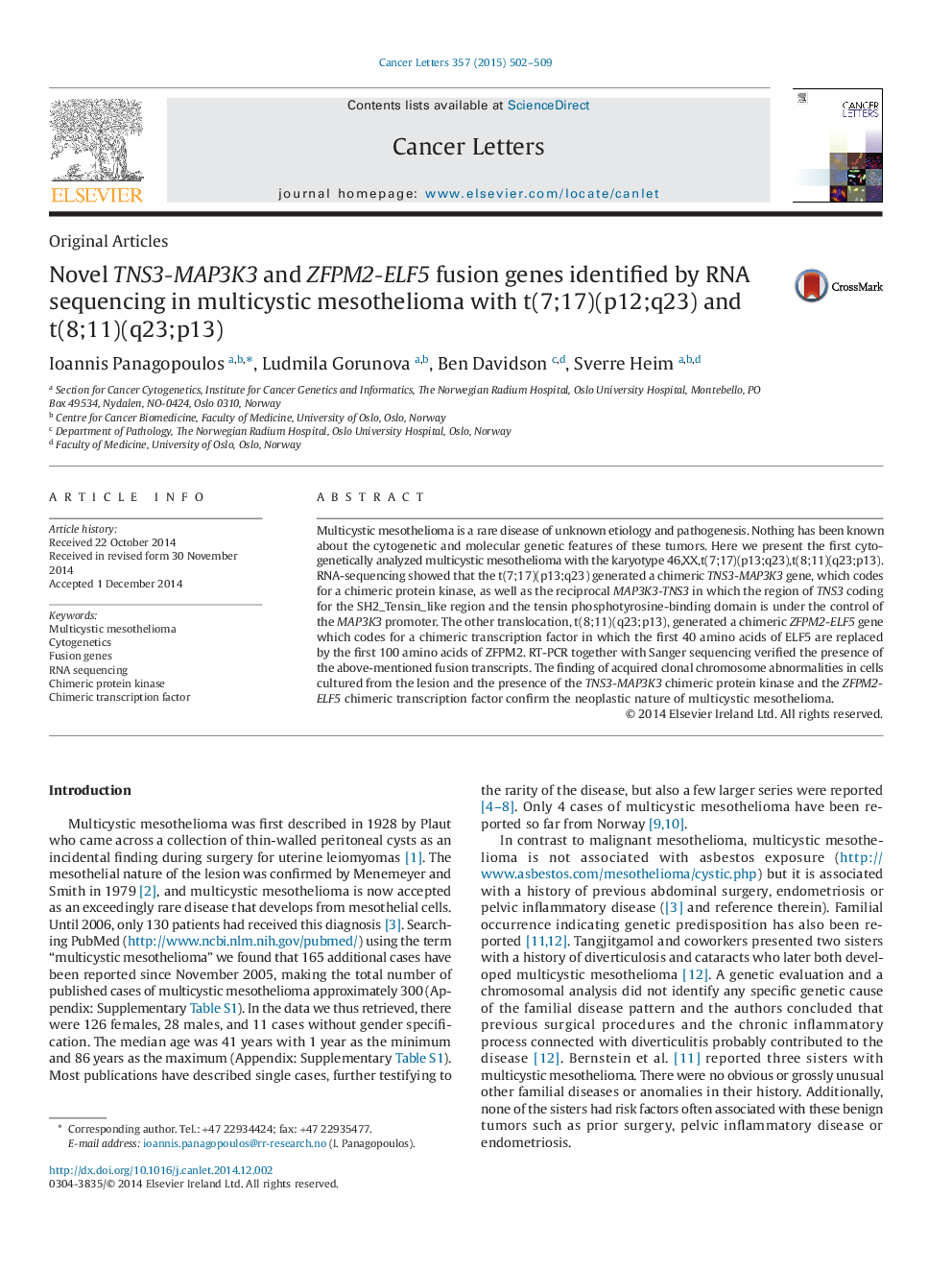| Article ID | Journal | Published Year | Pages | File Type |
|---|---|---|---|---|
| 2116170 | Cancer Letters | 2015 | 8 Pages |
•A multicystic mesothelioma had the karyotype 46,XX,t(7;17)(p13;q23),t(8;11)(q23;p13).•The t(7;17)(p13;q23) generated a chimeric TNS3-MAP3K3 gene, which codes for a chimeric protein kinase.•The translocation, t(8;11)(q23;p13), generated a chimeric ZFPM2-ELF5 gene which codes for a chimeric transcription factor.•The findings confirm the neoplastic nature of multicystic mesothelioma.
Multicystic mesothelioma is a rare disease of unknown etiology and pathogenesis. Nothing has been known about the cytogenetic and molecular genetic features of these tumors. Here we present the first cytogenetically analyzed multicystic mesothelioma with the karyotype 46,XX,t(7;17)(p13;q23),t(8;11)(q23;p13). RNA-sequencing showed that the t(7;17)(p13;q23) generated a chimeric TNS3-MAP3K3 gene, which codes for a chimeric protein kinase, as well as the reciprocal MAP3K3-TNS3 in which the region of TNS3 coding for the SH2_Tensin_like region and the tensin phosphotyrosine-binding domain is under the control of the MAP3K3 promoter. The other translocation, t(8;11)(q23;p13), generated a chimeric ZFPM2-ELF5 gene which codes for a chimeric transcription factor in which the first 40 amino acids of ELF5 are replaced by the first 100 amino acids of ZFPM2. RT-PCR together with Sanger sequencing verified the presence of the above-mentioned fusion transcripts. The finding of acquired clonal chromosome abnormalities in cells cultured from the lesion and the presence of the TNS3-MAP3K3 chimeric protein kinase and the ZFPM2-ELF5 chimeric transcription factor confirm the neoplastic nature of multicystic mesothelioma.
